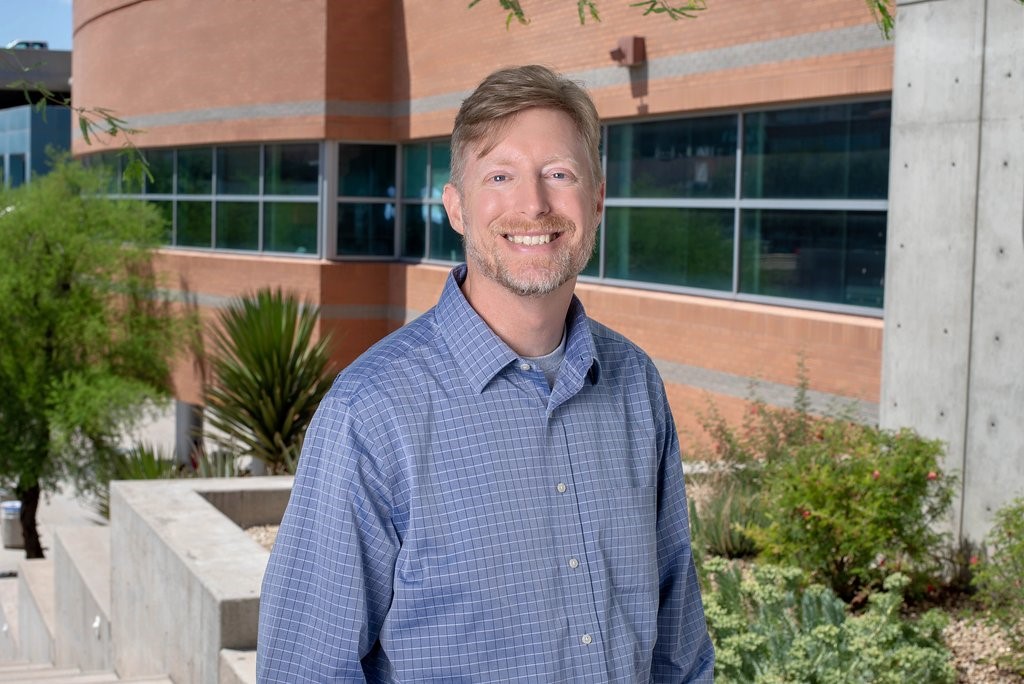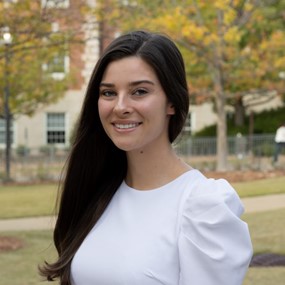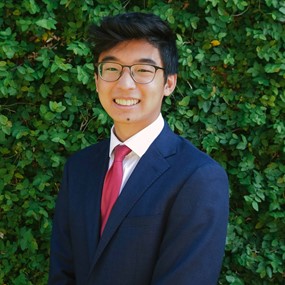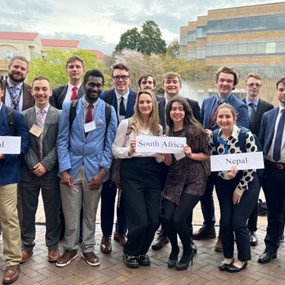The Soul of Place
Simmons Buntin '91 works where beauty, environment and story intersect

From literature to urban planning, Auburn alumnus and Terrain.org co-founder Simmons Buntin has devoted his life to telling stories and creating art.
Buntin graduated from Auburn in 1991 with a degree in political science and minors in everything that interested him since childhood: English, speech communications, geography and wildlife science. By bringing that interdisciplinary approach to environmental issues, Buntin blends art, science and community planning to encourage people to find beauty in our natural and built environments.
“There is beauty out there. We just need to dedicate ourselves to finding it or creating it,” Buntin said. “To create beauty in a world where there’s so much pain and harshness, so much injustice, is essential. How does someone find beauty? Start by taking a closer look around you.”
Buntin co-founded Terrain.org in 1997 at the dawn of internet magazines. Using what he knew from his website creation experience at the U.S. Department of Energy, he began to build a journal that would bring together art, architecture and environment.
Today, Terrain.org is the world’s longest publishing online journal of place and the second-longest publishing literary online journal. Buntin credits this success to the “love and dedication” of Terrain.org’s all-volunteer team.
“I knew we wanted to not just create a literary journal, but create an accessible, advertisement-free publication that really focused on architecture, town planning and sustainable design,” Buntin said. “Because of that blend of both literary and technical, we have a lot of city planners and decision makers who read the case studies and articles, and maybe they’re slipping over into the poetry, fiction and literary nonfiction and reading some things there too, and vice versa. It creates a unique mix as well as unexpected, or at least unplanned, exposure for our readers and contributors. We’re passionate about that intersection of interdisciplinary contributions, which results in its own kind of beauty.”
Terrain.org features poetry, nonfiction, fiction, articles, community case studies, editorials, photography, interviews, a podcast and a new online reading series. In recent years, the journal’s focus has shifted to climate and justice because of the interconnected nature of politics, environment and the urgency of climate change.
Buntin said addressing these critical environmental issues through art helped Terrain.org reach people long before climate change was discussed in mainstream media.
“From an arts perspective, often it’s the surface beauty that draws the reader in,” Buntin said. “But it’s all fundamentally about storytelling. So, if we use poetry or fiction or nonfiction or art to tell a story of environmental impact, that’s a way to get readers thinking about what it means and how we can respond.”
Storytelling, he said, is also central to his current role as director of marketing and communications for the College of Architecture, Planning and Landscape Architecture at the University of Arizona. He was drawn to academia to tell students’ stories, especially as more universities and colleges establish sustainability programs. Auburn’s own sustainability studies minor program, which invites students from any major of study to apply their knowledge to sustainable solutions to the world’s challenges, launched this spring.
In his own experience, it was Buntin’s liberal arts education at Auburn that allowed him the flexibility and freedom to carve his own career path. While he was a college student, he began writing poetry, continued pursuing photography and developed a sense of urgency about environmental issues–foundations for what would later become Terrain.org.
In addition to managing Terrain.org, Buntin also co-edited “Dear America: Letters of Hope, Habitat, Defiance and Democracy” and authored “Unsprawl: Remixing Spaces as Places,” a book of sustainable community case studies. His poetry books include “Bloom” and “Riverfall,” published by Ireland’s Salmon Poetry. He is certified by the Project Management Institute, has published both writing and photographs in international journals, and lectures at universities across the country. This spring, he returned to his alma mater to share his journey with current Auburn students.
“I really cherished my time at Auburn. I found my place here,” Buntin said. “I am so appreciative that Auburn’s liberal arts education allowed me to explore and discover what I wanted to do and who I might become. Of course, life throws curveballs at you, and you either hit them or dodge them, but Auburn, and particularly the liberal arts curriculum, did a fantastic job of preparing me for any kind of pitch thrown my way.”
Tags: Political Science English Communication and Journalism Alumni






